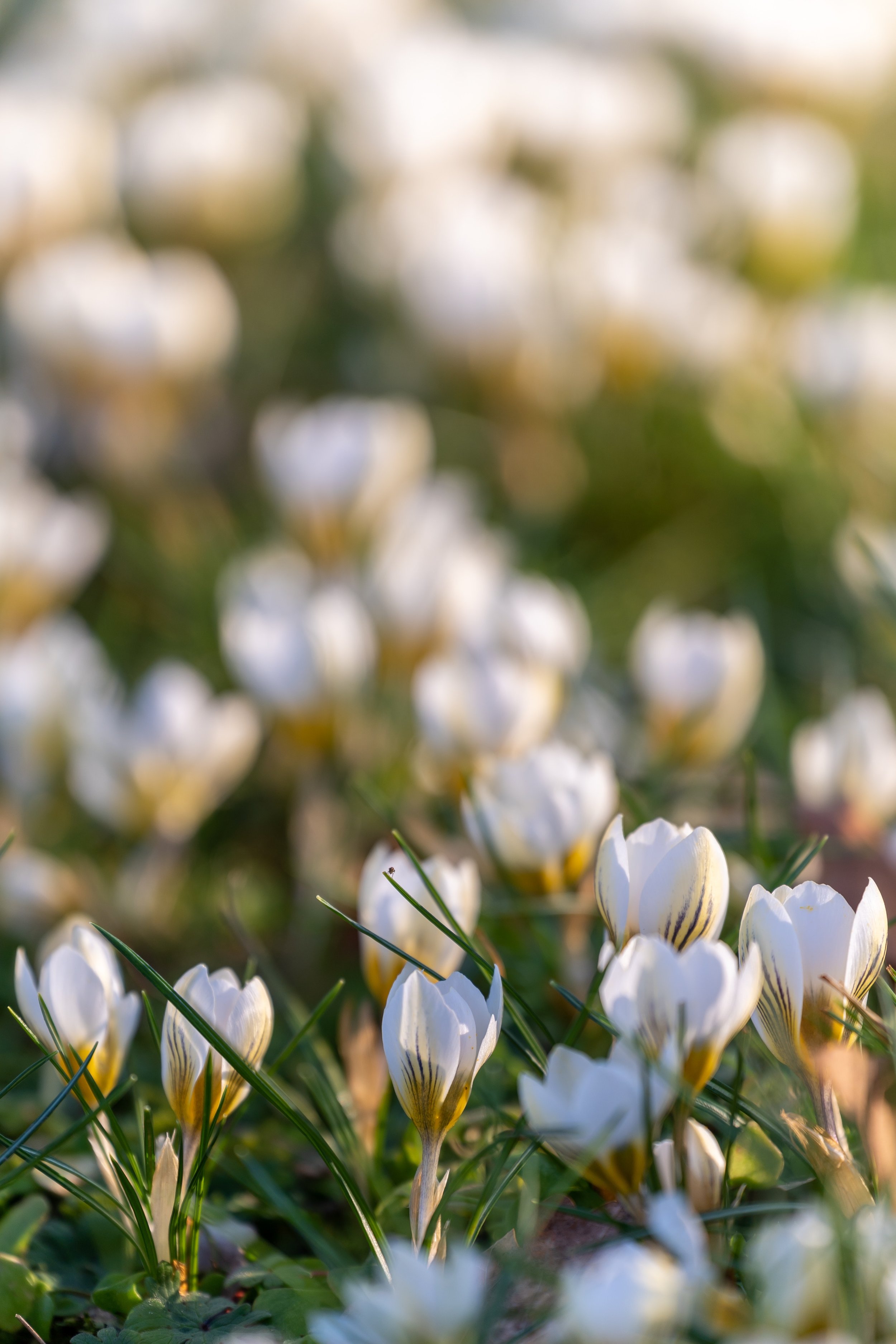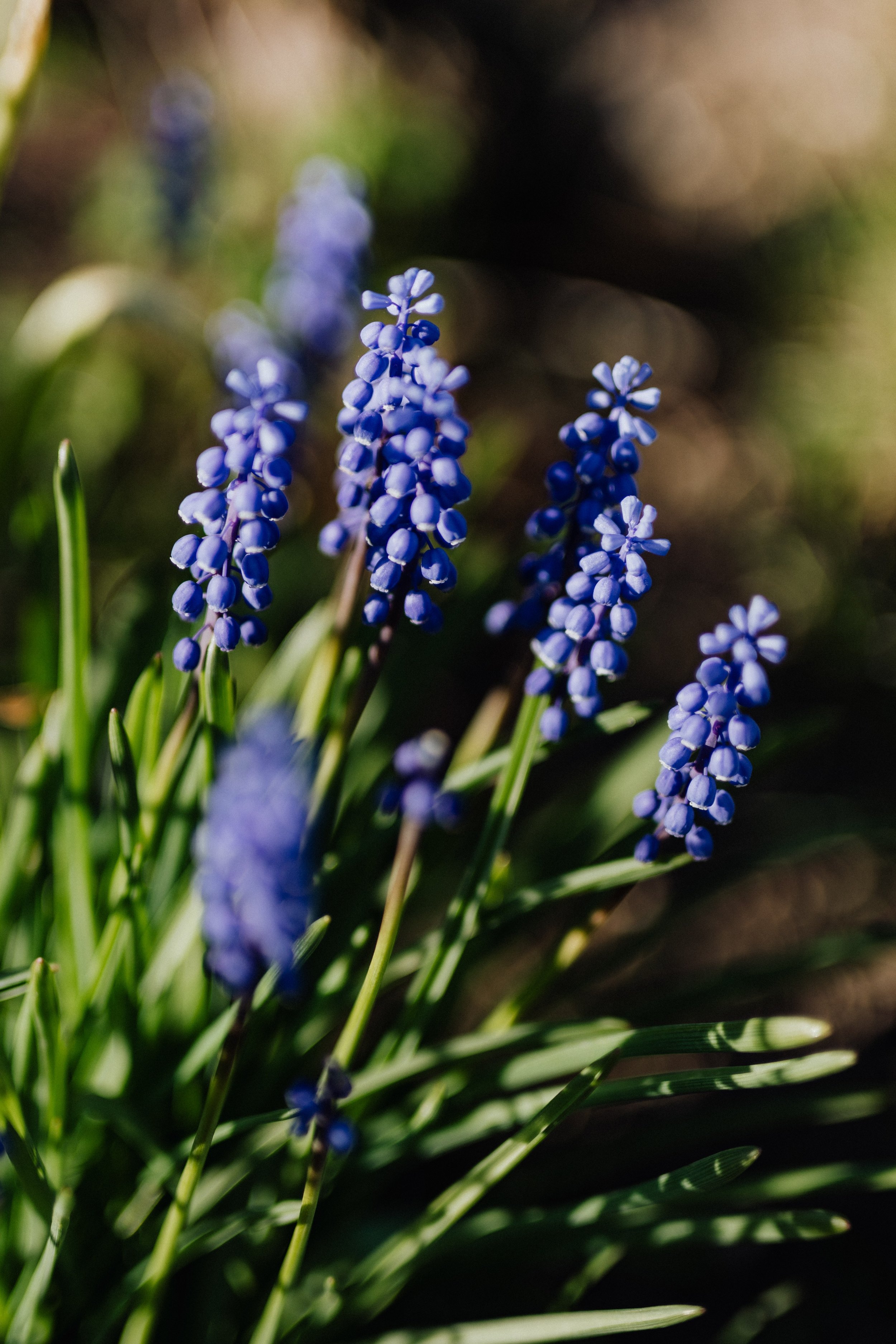Your Guide to Planting Fall Bulbs with Spring in Mind
We plant fall bulbs for the promise of spring.
If you’re planning for a grand spring show, grab your fall bulbs now and chill – literally, you have to chill them!
Easy to plant, low-maintenance, and incredibly rewarding, there’s no way you can go wrong with fall bulbs.
Get ready to find the best bulb planting window, our vast array of recommended varieties, and tips to bring you a spectacular spring garden.
What Are Fall Bulbs?
Fall bulbs are flower bulbs that are planted during the fall. Known as “dormant perennials,” fall bulbs require the cool temperatures of autumn soil to stir them awake from dormancy.
Come springtime, the gorgeous blooms announce their arrival with awe-inspiring hues and silhouettes.
When Should You Plant Fall Bulbs?
The ideal time to plant fall bulbs is when night temperatures reach 40 to 50 degrees. Here in our planting zone (9b and 10a), this would be 6 weeks before the first frost date (December 15th), making November 3rd a great time to plant your bulbs.
If you already have your fall bulbs, you’ll need to keep them chilled for 6 to 10 weeks before you plant them. Be sure to store them in a spot that’s away from your fruit! Fruit emits gasses that can rot your bulbs.
Which Bulbs Should You Plant in the Fall?
Here are all the varieties that we carry at the nursery and recommend:
Tulip - Blooms mid-to-late spring
Wildflower Mixture
Dutch Prince Mixture
Retro Tulip Mixture
Apeldoorn’s Elite
Banja Luka
Queen of Night
Pretty Princess
Purple Prince
Snow White
Carnaval de Rio
Candy Apple Delight
Beauty of Spring
White Elegance
La Courtine
Hakuun
Single Early (blooms early spring)
Christmas Dream
Princess Irene
Big Smile
Snow Crystal
Salmon Prince
Sunlover
Purple Dance
Design Impression
Pink Impression
Red Madonna
Ariel
Black Parrot
Blushing Beauty
Elegant Lady
Silver Parrot Design
Mount Tacoma
Apricot Beauty
Parade
Golden Parade
Orange Emperor
Red Emperor
White Emperor
Foxtrot
Crocus - blooms early spring
Large Flowering Mixture
Remembrance
Yellow Mammoth
Snow Crocus - blooms early spring
Orange Mammoth
Daffodil - blooms mid-spring
Dutch Master
Mount Hood
Dutch Iris - blooms late spring
Carmen
Mixture
Dwarf Iris - blooms very early spring
Dark Blue
Narcissus - blooms late winter to late spring
Tête à Tête
Jetfire
Red Devon
White Lion
Persian Lily (Fritillaria persica) - blooms mid-to-late spring
Peruvian Lily (Scilla peruviana) - blooms late spring
Grape Hyacinth - blooms early spring
Muscari latifolium
Muscari ameniacum
Red Spider Lily (Lycoris radiata)
Single Snowdrop (Galanthus woronowii) - blooms very early spring
Siberian Squill (Scilla siberica) - blooms early spring
Check out the Fall Bulb Growing Guide and Growth Chart here!
How Do You Plant Fall Bulbs?
Here’s what you’ll need before you start planting your fall bulbs:
Espoma Bulb-Tone
G&B Organics Rose & Flower Planting Mix
Sluggo Plus
G&B Organics Bud & Bloom Fertilizer
Find a sunny location that receives at least 6 hours of sunlight. Remove weeds and loosen up the soil.
Next, it’s time to dig. The depth of the holes will depend on which bulbs you’re planting. (Please refer to this chart.) Add Espoma Bulb-Tone to the bottom of the hole.
Place each bulb on top of the bulb fertilizer that you had just placed at the bottom of the hole.
Make a mixture with half of G&B Organics Rose & Flower Planting Mix and half of Espoma Bulb-Tone. Then, cover the bulb with your soil mix and water thoroughly.
You’ll need to water it again only when the soil feels almost dry at 2 inches deep.
When new growth starts to push through in the spring, you’ll need to protect your plants from slugs, snails, earwigs, and sowbugs with Sluggo Plus.
Feed your bulbs with G&B Bud & Bloom Fertilizer as soon as you see the new shoots. You can stop fertilizing when the leaves turn yellow at the end of the season.
At the end of the season, pull up the bulbs and store them in a cool, dry, and dark spot until the next season.
Now go plant those bulbs!
















